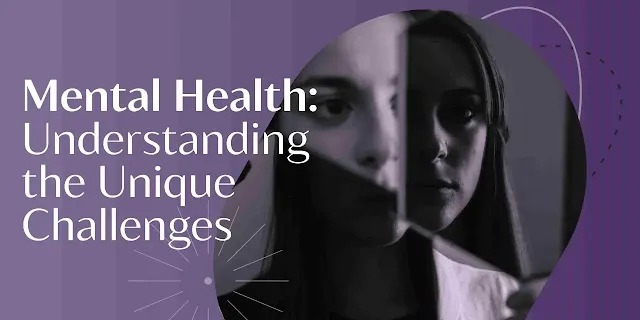Boost Your Mental Health Today! Discover Powerful Strategies to Overcome Stress, Anxiety and Depression. Take Control of Your Life Now.
In the present fast-paced and demanding world, mental health has emerged as a vital subject of discussion. It affects individuals from all walks of life, regardless of gender or age. However, when it comes to mental health, men and women often face distinct challenges. In this article, we will explore the specific issues related to mental health that affect men and women differently, along with strategies to promote well-being and seek appropriate support.
The Stigma Surrounding Mental Health
Mental health issues have long been shrouded in stigma and misconceptions. Men and women both face societal pressures and expectations that can make it difficult to discuss their emotional well-being openly. However, men, in particular, often feel compelled to conform to traditional masculine stereotypes, which may discourage them from seeking help or expressing vulnerability. Overcoming the stigma surrounding mental health is essential for both genders to address their well-being effectively.
Depression and Anxiety
Depression and anxiety disorders are prevalent mental health conditions that affect both men and women. However, studies suggest that women may be more likely to experience these conditions due to a variety of factors, including hormonal fluctuations, societal pressures and genetic predisposition. On the other hand, men may be less likely to seek help or exhibit different symptoms, such as irritability or anger, which can lead to underdiagnosis or misdiagnosis. Raising awareness about the diverse manifestations of depression and anxiety is crucial for ensuring early intervention and appropriate treatment for all individuals.
Suicide and Self-Harm
Tragically, suicide rates continue to be a significant concern worldwide, with men being more likely to die by suicide compared to women. This disparity can be attributed to several factors, including men's reluctance to seek help, societal expectations of stoicism and limited access to mental health services. Understanding and addressing the underlying issues that contribute to these gender differences is crucial to prevent suicides and providing adequate support to those in need.
Eating Disorders and Body Image Issues
Although eating disorders are commonly associated with women, it is essential to acknowledge that men also face these challenges. Women often encounter societal pressures to meet certain beauty standards, leading to body dissatisfaction and a higher prevalence of eating disorders. Men, too, experience body image concerns, albeit in different ways. Cultural ideals of muscularity and strength can contribute to body dysmorphia and the development of disordered eating patterns. Promoting body positivity and challenging unrealistic beauty standards are crucial steps toward fostering a healthier relationship with body image for both genders.
Substance Abuse and Addiction
Substance abuse and addiction are significant issues that can have severe consequences on mental health and overall well-being. While men have traditionally been associated with higher rates of substance abuse, the gap has been closing in recent years. Women, too, face substance abuse challenges that can be influenced by factors such as trauma, societal expectations, and mental health conditions. Recognizing the unique risk factors and tailoring prevention and treatment strategies accordingly can help address the complex issue of substance abuse for both men and women.
Seeking Support and Treatment
Regardless of gender, seeking support and treatment is crucial for managing mental health concerns effectively. Creating safe and non-judgmental spaces for individuals to express their emotions and seek help is vital. It is essential to educate both men and women about the available resources, such as therapy, support groups and helplines, to empower them to take charge of their mental well-being. Normalizing help-seeking behaviors and dismantling the notion that seeking support is a sign of weakness can encourage individuals to seek assistance when needed.
Conclusion
Mental health uniquely affects men and women due to various biological, societal and psychological factors. By understanding the distinct challenges faced by each gender, we can promote awareness, provide appropriate support, and foster a culture of compassion and acceptance. It is crucial to continue the conversation surrounding mental health, break the stigma, and work together to ensure that individuals of all genders have access to the resources they need for a healthier and happier life. Remember, mental health is a shared responsibility and together, we can make a positive difference in the lives of both men and women.
Also read: 10 Home Remedies to Soothe Mosquito Bites and Protect Yourself
